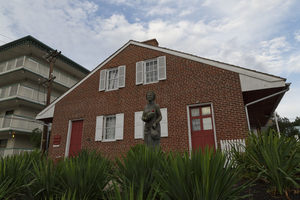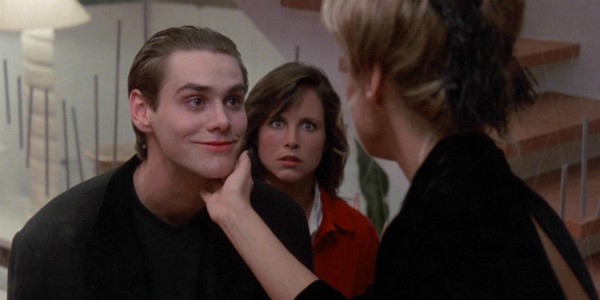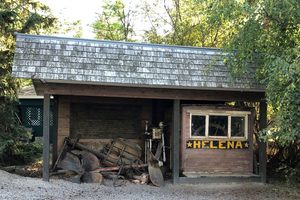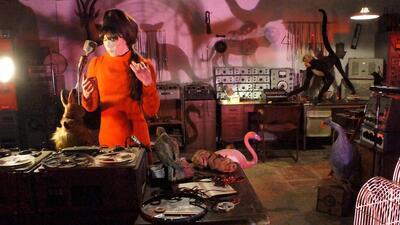“I’m Always Fascinated By The Emotional, Human Story.” Interview With Ric Roman Waugh, Director Of GREENLAND
Even watching the trailer for Greenland, it’s easy to get carried away by the ominous comets hurling across space towards the Earth. It’s all too easy to throw yourself in the grips of that crisis, where staring up at the sky and gawking at the incoming inevitable wouldn’t be unfair. But to director Ric Roman Waugh’s credit, this grounded thriller keeps the action on full tilt as one family does what they can to stay together and escape what must feel and look like their fate.
Starring Gerard Butler and Morena Baccarin, the film feels like the perfect counterpart to our virus-laden land, and in preparation for its Blu-ray release on February 9, Film Inquiry spoke with Waugh about his experience working on the film, including his progressing collaboration with Butler and his approach to balancing a human story under a cataclysmic banner.
This interview has been edited for clarity.
Luke Parker for Film Inquiry: This is a disaster movie, but the comets and the destruction seem to take more of a backseat role to the people the film encounters. Would you describe Greenland more as a human story than a disaster movie?
Ric Roman Waugh: Yeah, that was actually my favorite part of making the film. Whenever I read a script, I’m always fascinated by the emotional, human story. I call it “hiding the peas in the mashed potatoes.” You want to create a big thrill ride for audiences and you want to entertain them – that is your primary goal – but also, I want them to feel something. I want them to have an emotional state-of-mind, something that the movie can tap into and make them think.
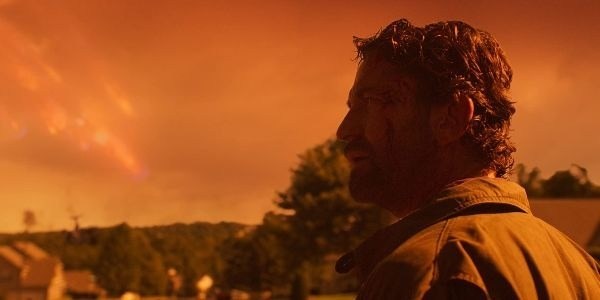
When I read Greenland, I realized that the movie was never about the comet. That monster was too easy to identify. The other monster was humanity itself. It was about what we would do in a life-or-death situation. Mind you, this was all pre-COVID. We made this movie two summers ago, before we even knew a pandemic was coming and so forth. So you’re trying to make these hypothetical situations and figure out how people would react, what would happen, and what information we’d be getting. At one point, we were thinking we showed too much news in the movie, people won’t want to hear it. And then we go through a pandemic, and we weren’t sure if we had enough news in the movie! [laughs] It’s just constant.
But to me, I love the fact that the movie looked more from the inside-out. It was about being with this family and seeing the disaster from their point of view so that we could relate to them and wonder what it’d be like if it was us and our own family.
You just mentioned this film being made pre-pandemic and the hypothetical situations you had to create. Now that we’ve gotten some glimpses at modern hysteria, would you change anything about how your masses reacted to this crisis?
Ric Roman Waugh: No. For me, the most important thing to remember is that as a filmmaker, I’m not making a documentary. I’m trying to create a form of entertainment. But authenticity has always been my bread and butter, and something I’m known for – whether I’m taking you to prison (Felon) or the Has Fallen franchise with Gerard Butler in the last one, and with this one in Greenland.
You’re trying to create situations that feel grounded and authentic but have a heightened sense, too, so that you can have a cinematic experience. And I think for what we wanted, everything was spot on. Again, it was very specific to this idea that you’re running from this monster that’s unavoidable, and I loved the confrontation in the script with that reality. This is happening and there’s no way to stop it, so what do you do when you know the end of the world is coming?
On that note, is there a trick to balancing and maintaining character in the throes of a perilous, more action-based scene?
Ric Roman Waugh: It’s always about attacking the scene from an emotional and intimate point-of-view. If you’re thinking that you want the audience to be in the character’s point-of-view and to feel what the character is feeling, then your camerawork and your choreography and everything all the way to the music is going to affect that. They’re going to build that cohesive thread between the audience and the characters.
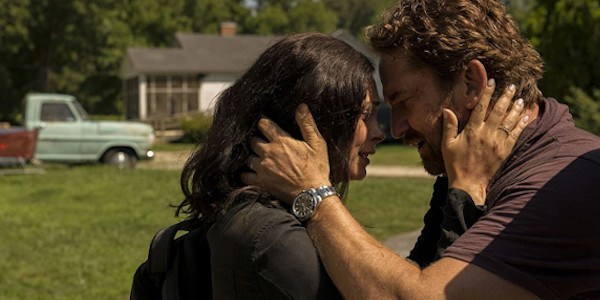
You know, you hope you’re smart enough to hire far smarter people around you so that they can help you achieve your vision and what you’re going for. So, the filmmaker’s job is about conveying, from the very beginning of the project, the tone and conveying the sense of journey you’re looking for. And for me, it’s always coming from character – whether it’s action, or drama, or some static moment, what is the emotional content of what we’re doing.
There’s one action scene that I wanted to talk about specifically, and it’s the close quarters fight on the stake bed truck. Can you walk me through the choreography of that scene, between the performers and the cameraman?
Ric Roman Waugh: The thing about working with Gerry [Butler] that has been a huge blessing for me is one, he’s truly a gifted actor, but he’s also really talented with choreography and athleticism. So I can put him in these situations that you usually would never put an actor in. I wanted to shoot this fight on a highway in the back of this stake bed at 70 miles-per-hour so that you could see the turbulence and the wind. No green screen. And that’s exactly how we did it. We did it for real.
We had handheld cameras in the back with them, as well, and what’s great about Gerry is that you expect stuntmen to be aware of their surroundings so that everyone is safe – and he’s like that. He’s got such a good sense of awareness and choreography that I can have him drive through people as bombs are going off; I can have him fighting in the back of a stake bed with a hammer. We’re able to put him in situations where you get what I’m going for, which is an emotional content to the action. Not just action for the sake of action.
This is your second film in a row with Gerry, with a third already in the works. How has your collaboration evolved across these projects?
Ric Roman Waugh: It’s phenomenal. The thing that really works for me and Gerry is that we were friends first – knew each other for about ten years – and then I was very lucky for him to invite me onto the Has Fallen franchise with Angel. You always wonder if you’re going to have the chemistry. You hope you do. And it was just like a lightning rod with us.
But I think the thing that works for us is honesty and respect. He knows how much I respect him and I know how much he respects me, but we were honest with each other. We did not hold punches. If one of us had an issue with something, we’d bring it up.
With that transparency, that knowing that you’re not going to be judged and that you’re just trying to raise a bar, we’re able to go after things that aren’t the usual suspects. I mean, to do a disaster movie that’s really about humanity, and Kandahar, the project we’re doing next, which is about the Middle East and the humanity of the region but told in a way we haven’t seen before. It’s fun to have a person that gets the movies you want to make, and vice versa, where they’re entertaining with an emotional thrust.
With Kandahar, what’s going on with the production? Are you waiting until COVID passes?
Ric Roman Waugh: We were supposed to be filming right now, but because of how bad the surges were across Europe and now, obviously, across America, we’ve pushed the pause button for safety. It’s an international movie with a lot of moving parts in a lot of different countries. So, we’re going to get back into the swing of things on that movie in the Fall.
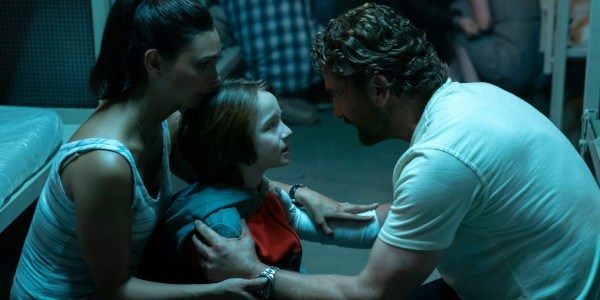
We’re very excited about it. We’ll still have safety precautions, and we’ll still follow COVID protocol, and I think people will understand that there is a way to live with it. You know, hopefully, enough people will learn to keep each other safe by wearing their masks, and hopefully, the vaccines will get us over this hump. But we’re not giving up. We will make this movie. It’s too important to us.
I wanted to talk about the look of the disaster. Fortunately, you didn’t have any Earth-shattering comet storms to base the film on. Can you talk a little about the decision process and what kind of research your team conducted to achieve that ominous, yet realistic look?
Ric Roman Waugh: I really wanted the sense that, if you think about it, when the first comet hits, when the first fragment hits, you’re going into nighttime. So you go through this whole entire night of not really understanding how the world has been reshaped, and then you wake up the next morning…
Unfortunately, we were able to study the Australian bushfires and how the sky turned into this ominous, tobacco hue. And to us, knowing that you’re dealing with multiple fires and multiple impacts and fragments, and after researching Earth’s last extinction event, we knew the dust and the ash would almost block out the sun. We took all that to a creative license to see that new dawn, to see that the world had changed.
Film Inquiry would like to thank Ric Roman Waugh for taking the time to speak with us!
Greenland is available to own digitally now, and will be available on Blu-ray/DVD February 9.
Does content like this matter to you?
Become a Member and support film journalism. Unlock access to all of Film Inquiry`s great articles. Join a community of like-minded readers who are passionate about cinema – get access to our private members Network, give back to independent filmmakers, and more.
Join now!

